The best days of selling cheap Chinese goods in Africa are over
Nairobi, Kenya
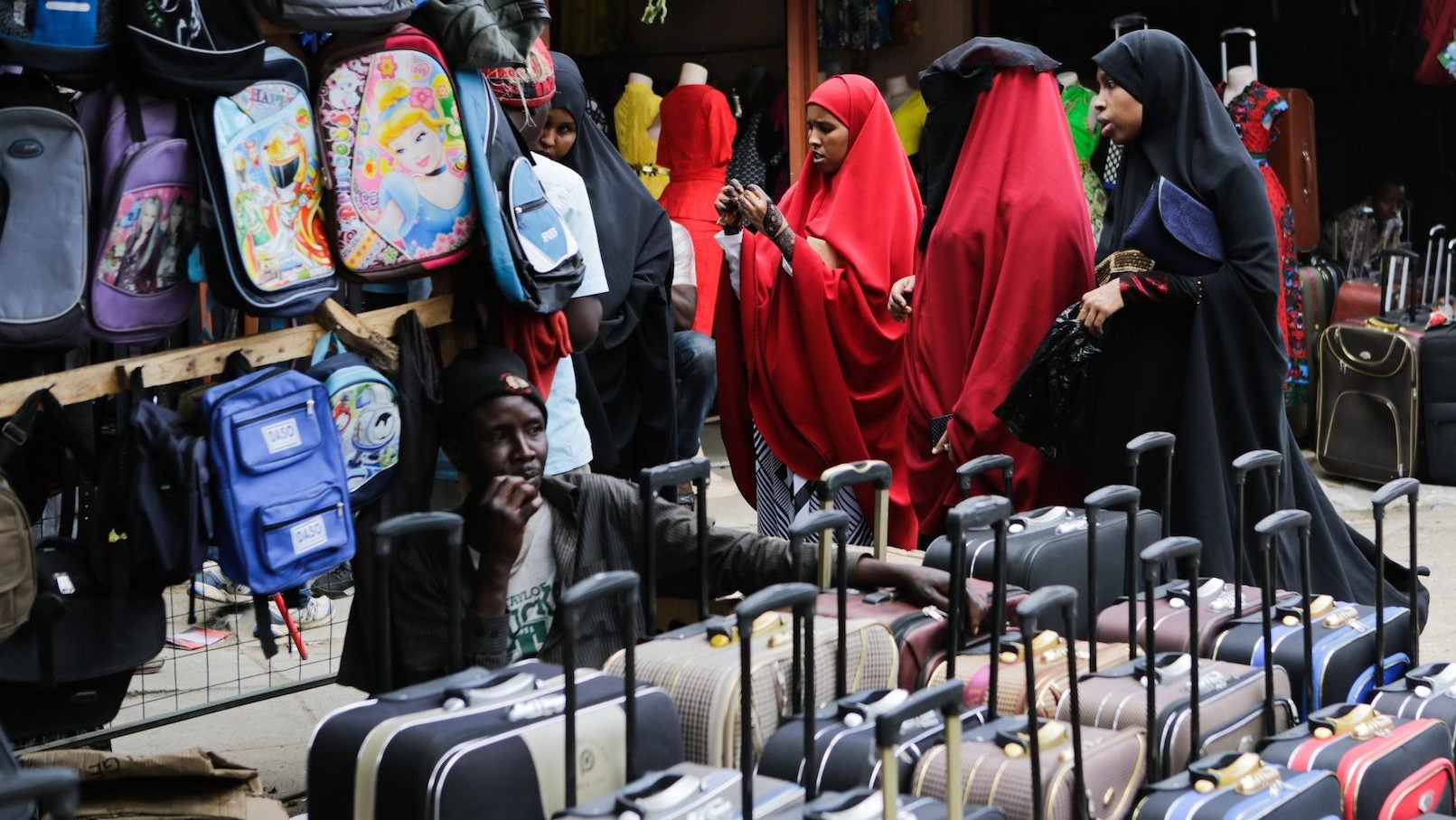

Nairobi, Kenya
In just 20 years, a sleepy residential neighborhood east of Nairobi’s central business district has become one of the most globally connected trade hubs in Africa.
Here, thousands of wholesale and retail traders sell clothing, electronics, fabric and more that make their way across East and Central Africa. Purses, dresses, and suits displayed in the neighborhood’s many malls are branded, “Made in the PRC,” a deliberately vague label that shoppers often don’t realize refers to the People’s Republic of China. Other items come from Ethiopia, Dubai, and Turkey. Investment flows in from entrepreneurs based in the United Kingdom, the United States, and elsewhere.
Eastleigh, or “little Mogadishu” as the area is known for its number of Somali residents, owes much of its wealth to the trade of mass produced goods from China. Sales of Chinese goods make up almost all of Eastleigh’s 2.9 billion Kenyan shillings (about $28 million) in turnover a year, according to the Eastleigh Business District Association.
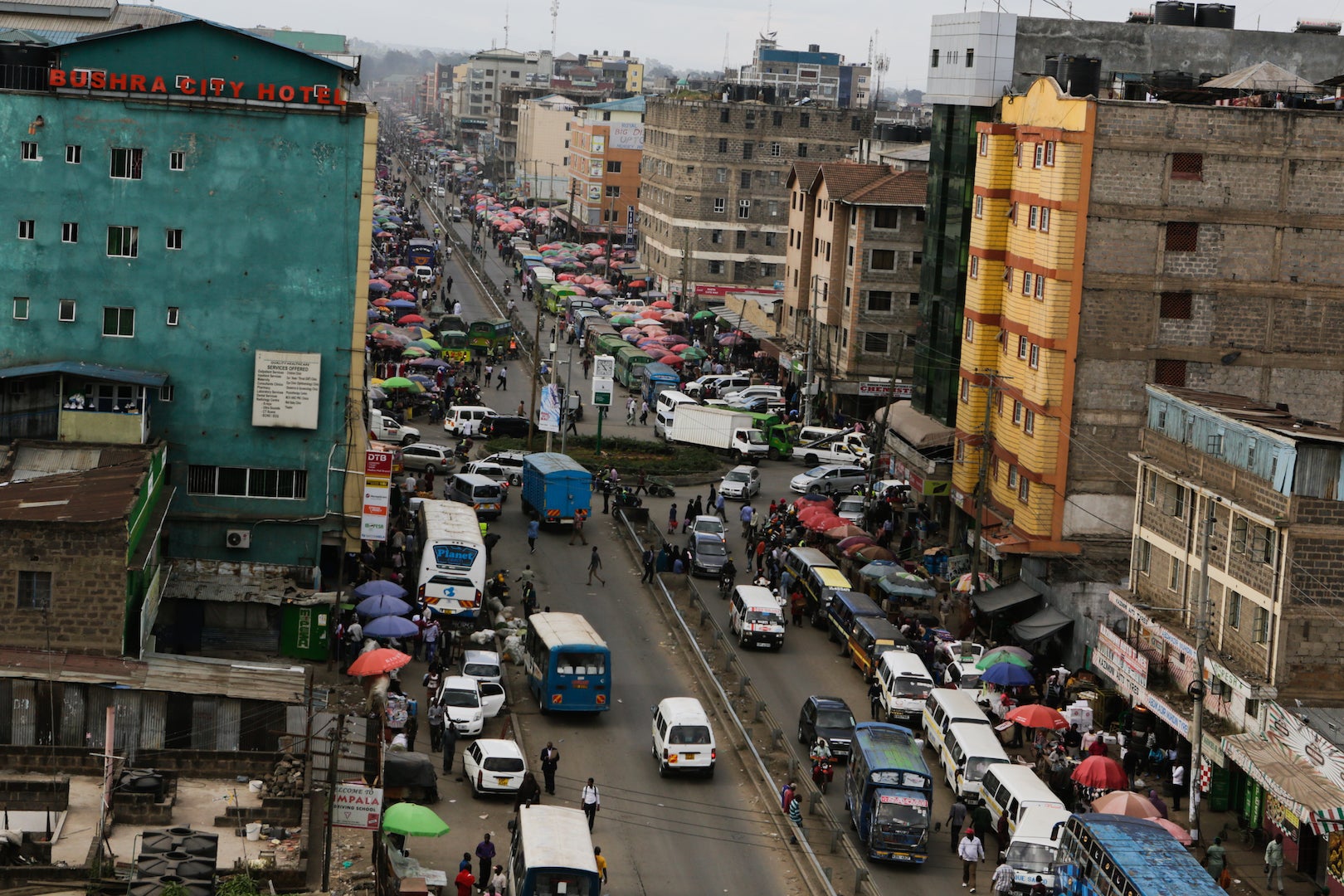
“Ninety percent of these items are coming from China. We rely more and more on China,” says Omar Hussein, general secretary of the Eastleigh Business District Association. Hussein has been traveling to China to source clothes for his menswear shop for most of the last decade.
Now, more people are finding that this line of work isn’t as reliable anymore. Years of quick profits have inspired more people to get into the business and expanded trade connections between China and Kenya have made it much easier to start. Today, Eastleigh is home to at least 50 malls, each housing hundreds of stalls selling often identical merchandise from manufacturing hubs like Guangzhou or Yiwu in southern and central China.
“The business is too slow and the malls are too many. You can see it from the stores, all selling the same things, the same quality,” says Mohamed Ali, who owns a menswear store in Amal Plaza, a five-story mall on Eastleigh’s main road, First Avenue. The walls of Ali’s shop, Nasiib Fashions, are lined with jeans, suits, and polo shirts brought over from China.
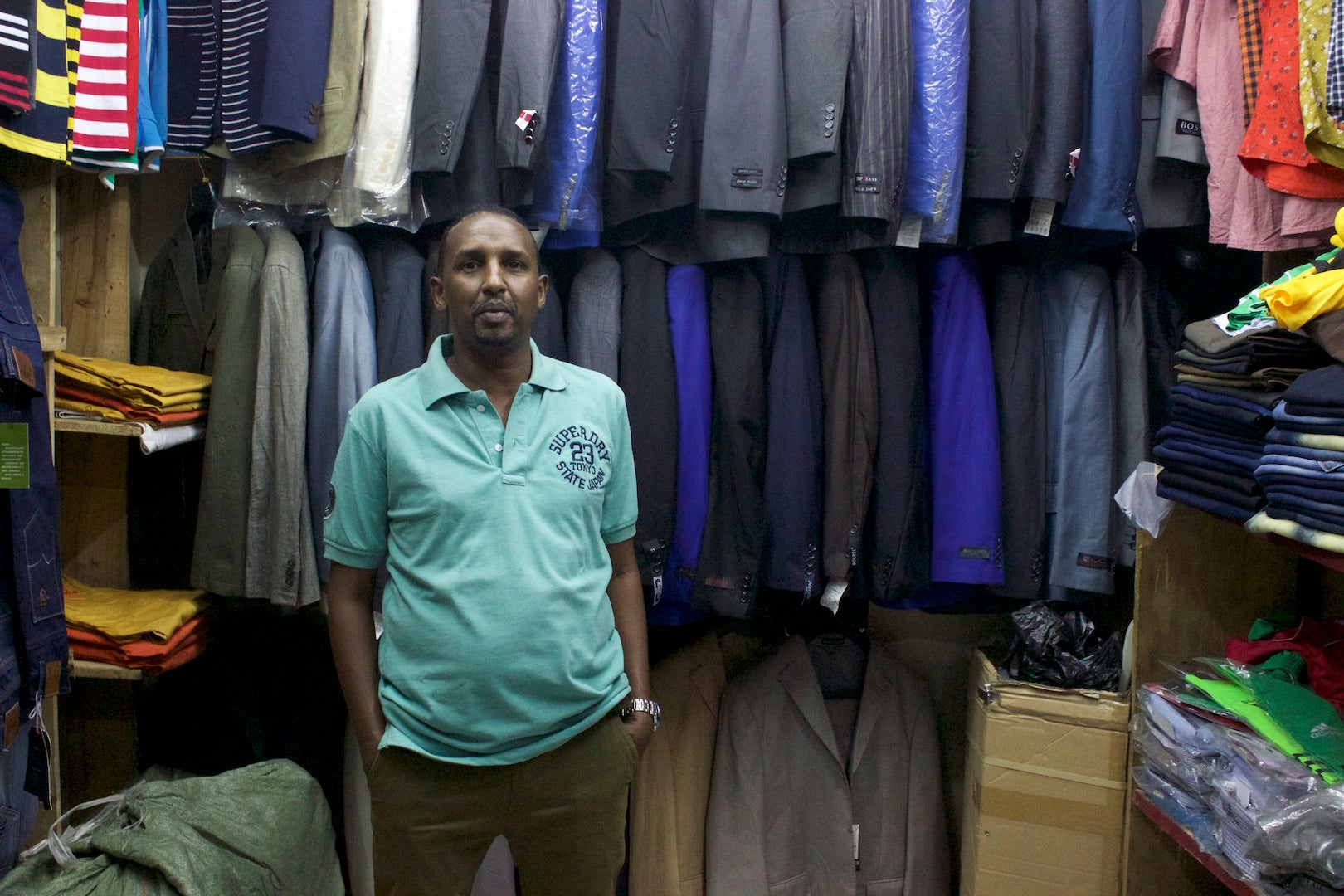
When Ali first opened his store almost eight years ago, he could make about $100 a day, enough to build a house for his four children and wife in Isiolo in northern Kenya. Now, making even half that is hard. Other local traders and shop owners say business isn’t as good as it used to be.
“It’s more about surviving these days when in the past it was about thriving,” says Neil Carrier, author of a recent book on Eastleigh, Little Mogadishu: Eastleigh, Nairobi’s Global Somali Hub.
The boom years of trading in Chinese goods may be over not just for Eastleigh, but for the thousands of African and Chinese who have been facilitating the flow of cheap Chinese goods into Africa. Across the continent, Chinese products dominate the market for everything from cell phones to traditional dutch wax prints.
Now, African traders from Kenya to Nigeria are struggling with competition and the rising costs of Chinese goods. It’s easier to move goods between China and Africa than ever before, but tightening visa regulations are making it harder to operate in China. Guangzhou, the main hub for Chinese products destined for Africa, has begun to empty out of the African traders and businesspeople that have collected there over the past decade.
Chinese traders who have set up shop across Africa, selling to African traders or directly to customers, are also getting hit by weak local currencies and growing competition from other Chinese and African traders. In South Africa, home to Africa’s largest Chinese community, Chinese traders are moving to less saturated markets in Africa or going back home. Chinese communities in Botswana, Senegal, and Angola have shrunk as more consider leaving.
“My suspicion is that the days of Africa-China trade in Guangzhou are going down, and that the best days are done,” says Gordon Mathews, an anthropologist at the Chinese University of Hong Kong, who has written a forthcoming book on the topic.
Guangzhou to Eastleigh
It’s surprisingly easy to get things from Guangzhou, a port city of 14 million, to Eastleigh, a central Nairobi neighborhood of 200,000 that struggles for government funds just to fix its roads.
Hundreds of businesses, from brokers and money changers to transport and logistics companies, exist to cater to the trade of Chinese goods. Cargo companies with offices in China and Kenya arrange every step of the process from picking up buyers at the airport, to checking on their orders before shipment. Traders who can’t afford to fill an entire container themselves can share with others in a process called “groupage.”
Even traveling to China isn’t as necessary anymore. Those with established connections in China make their orders through WhatsApp or WeChat, using video chat to check on their products. Payment is made through trusted relatives and friends to avoid extra fees charged by banks.
These links are more than two decades in the making. In the late 1990s and early 2000s, Somali and other African traders who had been sourcing from Dubai and Hong Kong began going directly to mainland China as the Chinese economy took off. At a time when global consumer giants were ignoring Africa, African traders began importing more and more Chinese goods.
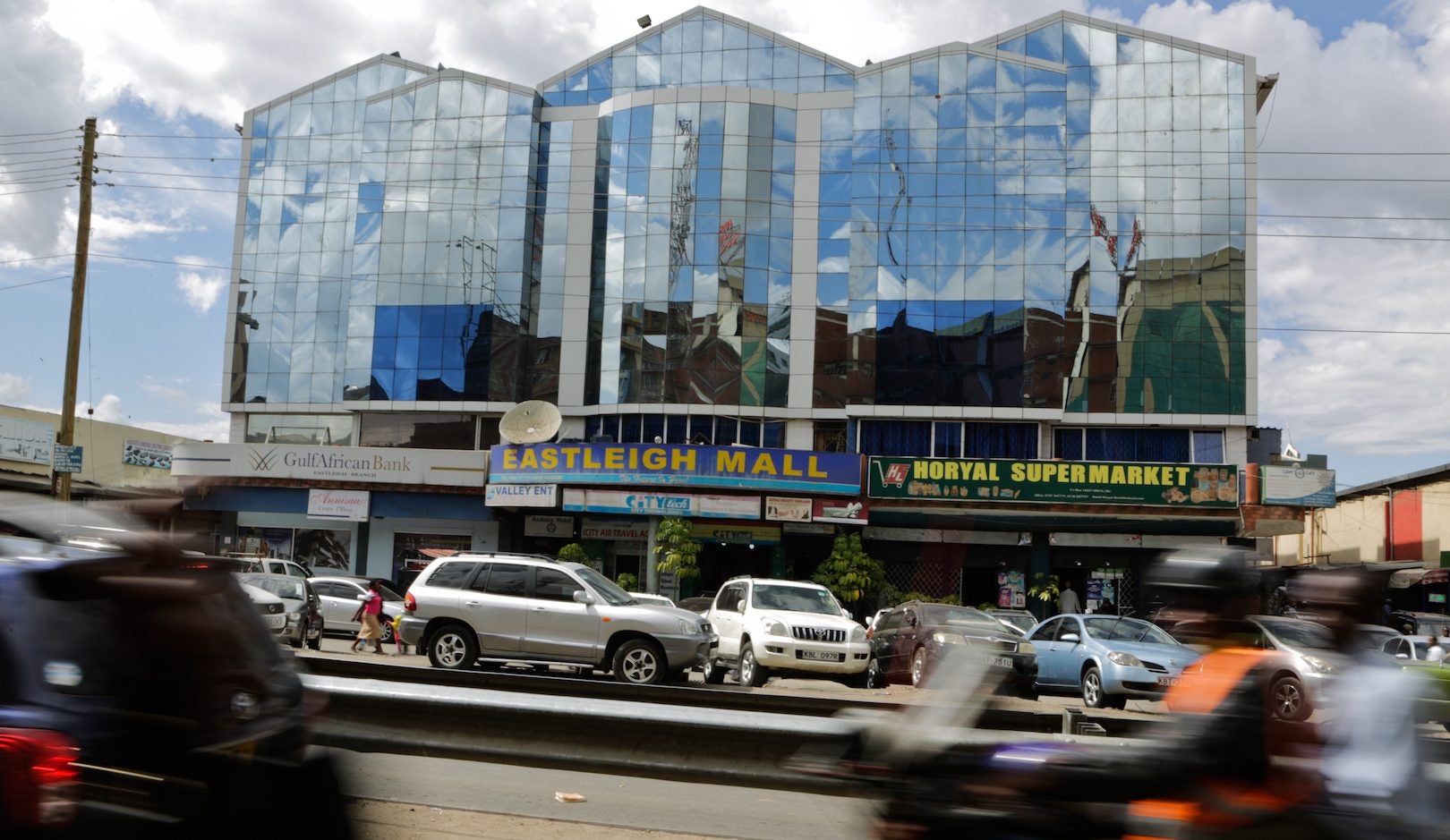
Eastleigh, where many Somalis fled to after the outbreak of civil war in their country in 1991, became a base for the Somali diaspora. As it expanded, Somalis based in the US, the UK, and elsewhere invested in property and businesses in the neighborhood, and more people got into the business of buying and selling made-in-China items.
“Up to and during the mid-2000s, there was a moment when just importing goods to African markets was enough to make money,” says Emma Lochery, a post-doctoral researcher at the University of Liege in Belgium who has researched trade between Eastleigh and Guangzhou.
China accounted for just 1.8% of African imports in 1992. By 2013, it had become the continent’s largest source of imports, sending three times as much (pdf. p.40) goods as either of Africa’s traditional trading partners, the US or Germany. Chinese exports to Africa reached $103 billion in 2015, according to UN Comtrade data. Some researchers say the real amount could be as much as 60% higher than official figures, given how much is underreported or smuggled through people’s luggage.
It’s an industry that straddles the line between the formal and informal. African entrepreneurs run business associations, logistics companies, consulting services, hotels, restaurants, and in some cases their own factories in China. Academics describe this flow of goods and people as a kind of “second economy,” or “globalization from below,” directed by individuals in developing countries with limited resources rather than multinational companies.
In Eastleigh, this dynamic is on full display. There are few things for sale that aren’t from China, including items specific to its majority Muslim Somali population. Small shops and traders sell prayer mats, compasses that indicate the direction of Mecca, fake gold jewelry styled after the elaborate necklaces and bracelets favored by Somali women, and Somali wedding dresses, called dirac.
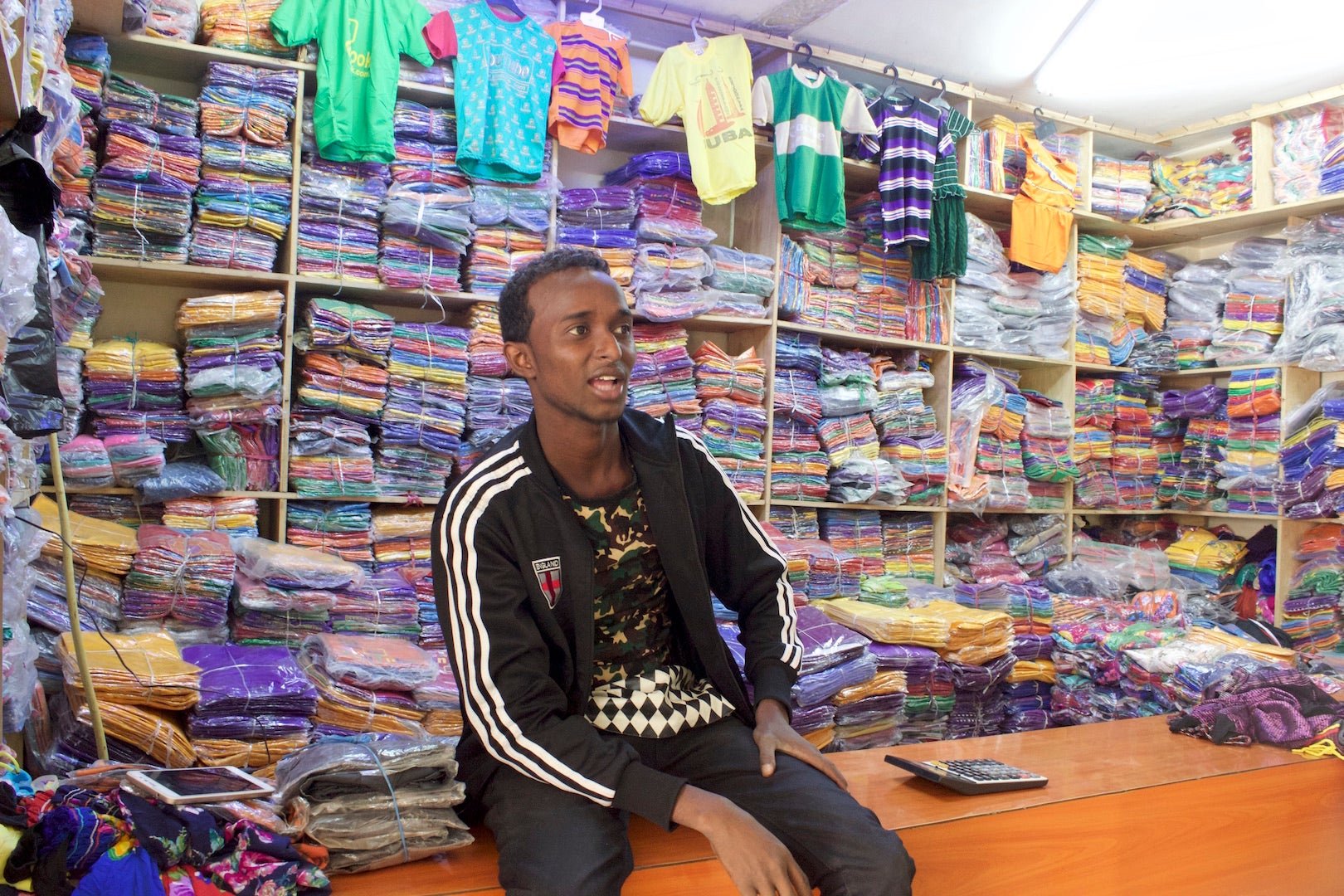
Critics say Chinese goods are being dumped on African countries to the detriment of local industry and African shoppers. Chinese textiles have been blamed for the decline of the local garment industry in Kenya, South Africa, and elsewhere. In April, hundreds of Ugandans protested in Kampala calling on Chinese traders to leave.
In some cases there are health risks. Counterfeit medicine, often from China, causes as many as 100,000 deaths a year in Africa, according to the World Health Organization. Ivorian authorities in March burned 50 tonnes of fake paracetamol, antibiotics, vitamins, and other drugs that appeared to have been made in China.
In Eastleigh, low-quality Chinese items are referred to as “one time” goods. (They’re called “fong kong” in South Africa or “chinko” in Nigeria.) Traders and shop owners in the Nairobi neighborhood defend their merchandise by pointing out that Chinese factories produce both low and high quality goods. It just depends on the price buyers are willing to pay.
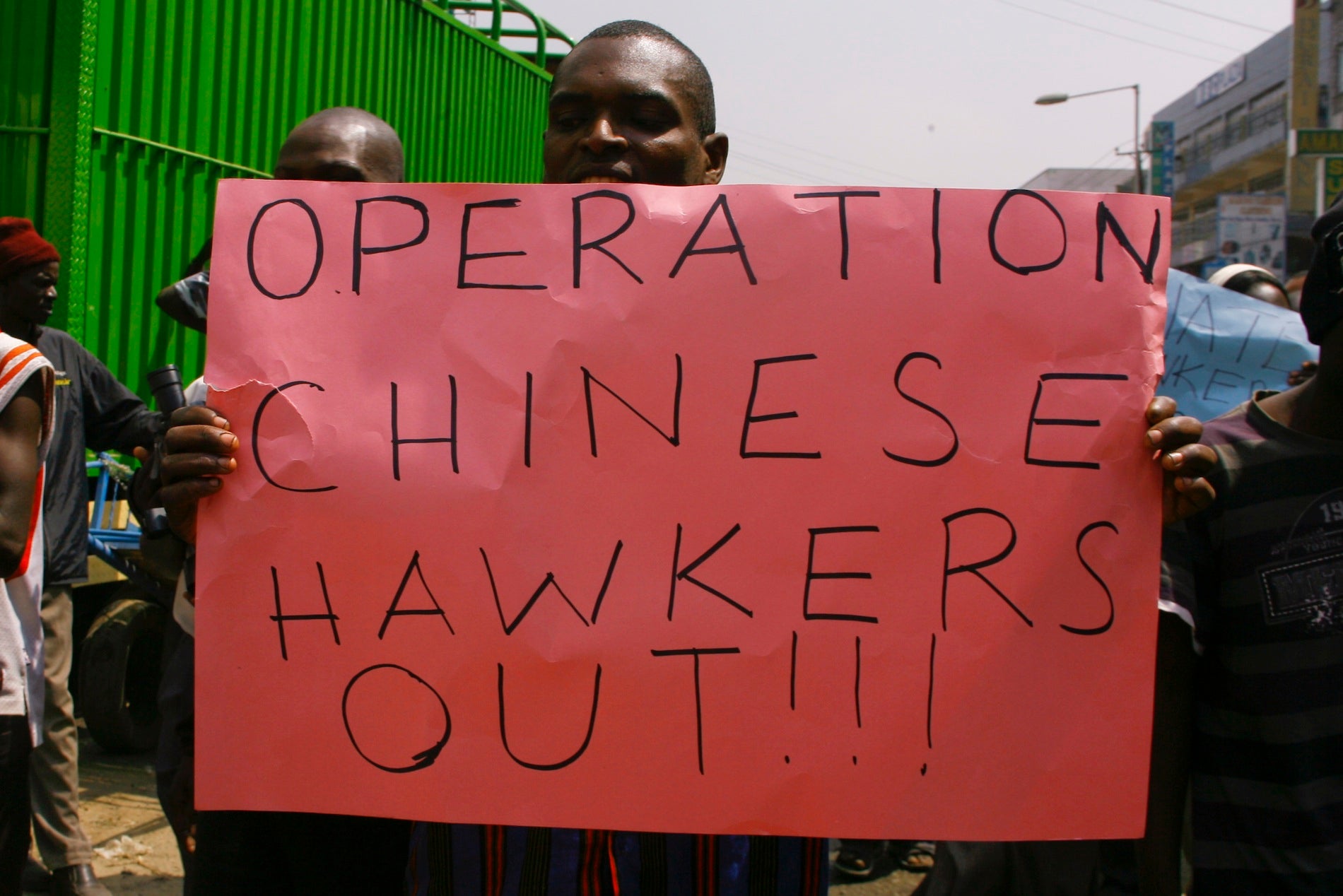
Others say China has brought cheap cell phones, machinery and other staples to people who would have otherwise struggled to buy such goods. “Many people say China items are fake, but the fact remains that everyone goes to China to buy goods,” says Hussein.
A shrinking market
It’s in part because of this ease of trade between China and Africa that business has slowed in Eastleigh. Down the road from Amal Plaza is another shopping center, Mega Mall. A few stores dot the ground floor. The second and third floors sit empty except for a local nonprofit and a storeroom of shoes. The Eastleigh malls are starting to see more vacancies and turnover of the shops is high, according to locals.
Eastleigh’s shops face more competition from Kenyan traders who have made their own connections in China as well as other Somali shop owners and traders. Chinese companies are also new rivals. Phones made by the Hong Kong-based mobile phone company Tecno are now ubiquitous across the continent. Telecom giant Huawei is also ramping up its marketing to sell cell phones directly to middle-class Africans.
Small-scale traders also face the threat of expanding supermarket chains like South Africa’s Shoprite, which can import in bulk from China. Nakumatt, a Kenyan grocery chain, is scheduled to open in a new upscale shopping complex in Eastleigh, the Comesa Shopping Mall, named to “embrace the spirit” of the trade bloc, or the Common Market for Eastern and Southern Africa.
“I think that we are seeing a process of market change from a period of new connections and opening up… to a period where making money requires a large amount of money, good networks, and the ability to protect a niche [or] secure contracts,” says Lochery.
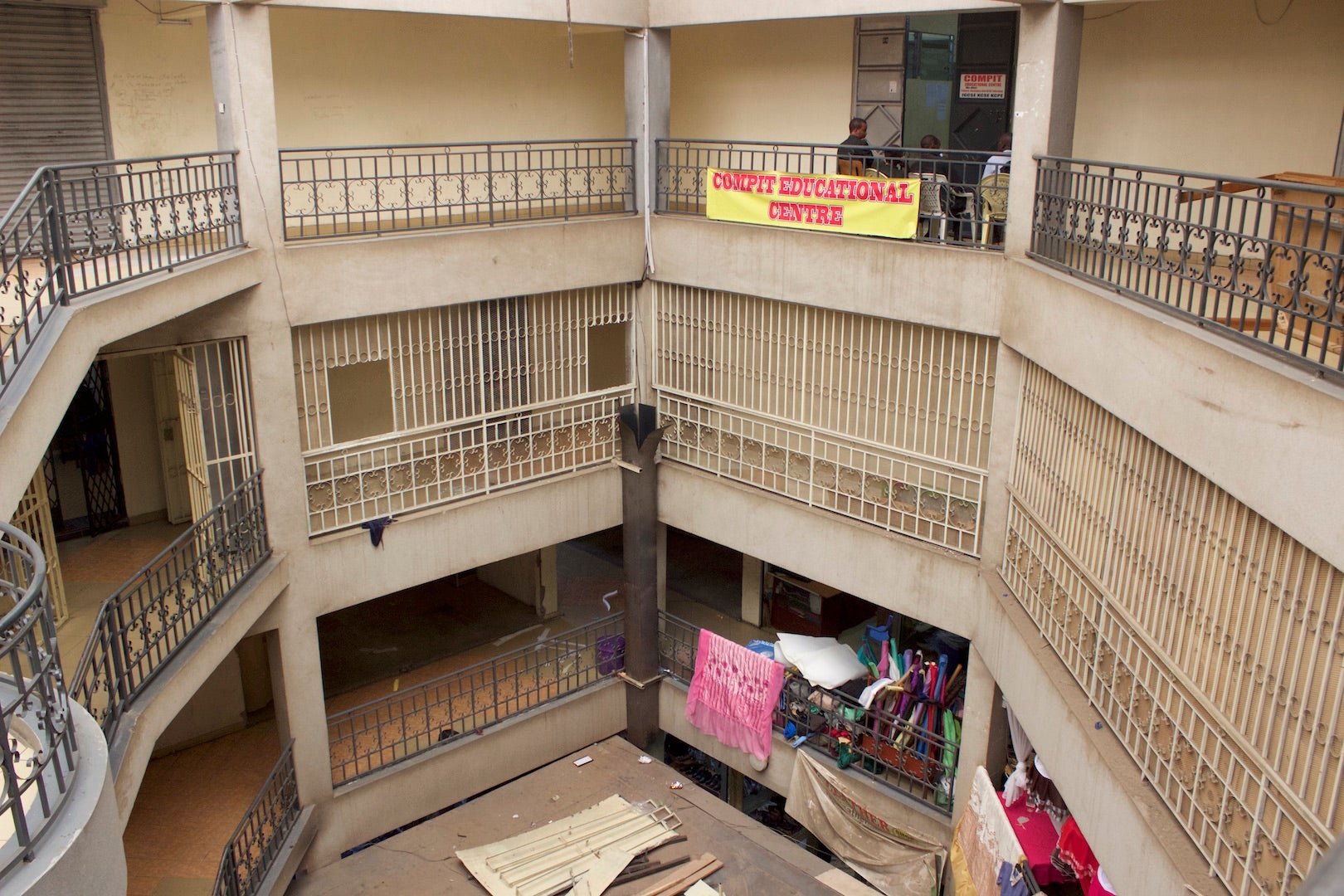
A shrinking market for Chinese goods will hit small businesses, traders, and hawkers the hardest. In South Africa, where Chinese traders and business people have opened dozens of shopping centers, generically called “China malls” selling inexpensive Chinese goods, more Chinese shops are closing.
Eric Phiri, from the coastal KwaZulu-Natal province, owns a computer shop in one of these centers, China Mall, in Johannesburg’s industrial Crown Mines area. He says the departure of the Chinese will eventually mean less foot traffic to stores like his.
“If the Chinese leave, it’s going to affect us. We’ll have to close down,” he says. He’ll struggle to find somewhere with similarly cheap rental space.
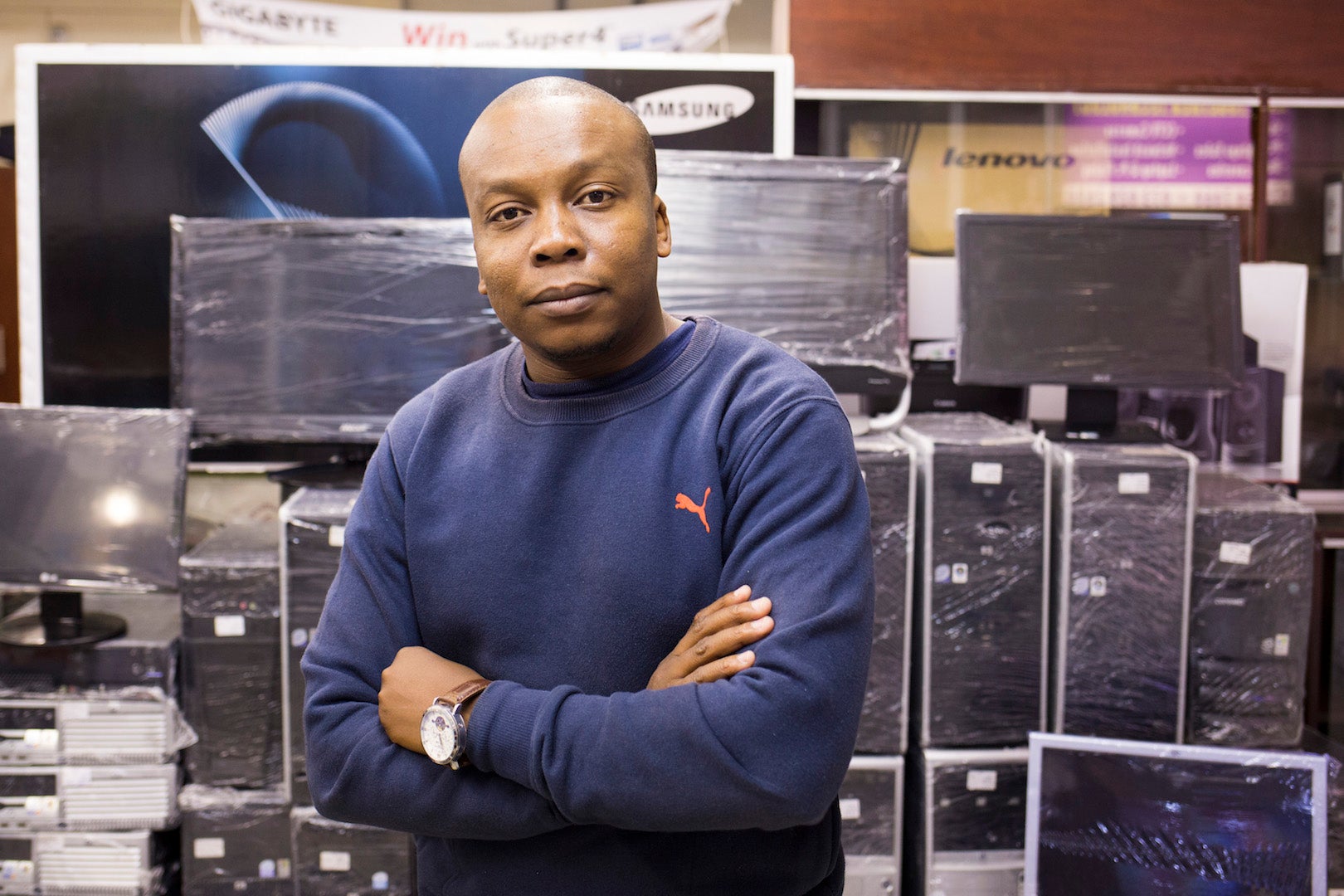
In Eastleigh, that will mean job losses and stores closing, a painful process given that several families often go in on one shop together. It’s not great for factories in China either, where demand from the US and Europe never fully recovered after the financial crisis.
For now, many are doing their best to cut costs, develop a niche market, or get into new businesses. Dan Kamwanza who owns a ladies wear shop in Amal Plaza with his brother, researches the latest styles on Instagram and browses the other malls in Eastleigh to see what’s selling well. He’s been able to make enough to fund more purchasing trips to Guangzhou—last year he went four times.
“It’s a very nice business. If you have the capital, the business is not bad,” he says.
Others are doing extensive market research through their networks in Africa, or looking for new niches, importing specialty items like ice-cream machines or fish eggs. “They can still benefit from what they learned in China, like how to import toilet bowls, materials, air conditioners,” says Heidi Haugen, a researcher at the University of Oslo studying China-Africa trade in Guangzhou.
Abdirahman Hassan owns a shop in Garissa Lodge, the first of the Eastleigh malls that got its start in the 1980s when Somali traders and refugees would sell smuggled goods from their rented rooms, spread out on their beds. (At night the traders stashed their merchandise underneath their cots while they slept). Hassan buys women’s clothes in Guangzhou where he spends several months out of the year. He thinks competition is tough but there’s still money to be made.
“The demand [for Chinese goods] is too much,” he says. Hassan is confident that he can get into other businesses, like selling electronics or building materials. “There are other things you can turn your attention to. In China, there are a lot of opportunities.”
Another way to do business
Slowing trade with China could also give African businesses and entrepreneurs an opening to make the goods they’ve been buying from China. Manufacturing accounted for 10% of GDP on average in sub-Saharan Africa in 2013, around the same rate it was in the 1970s. As labor costs in China rise, more manufacturers might look to African countries with ready supplies of cotton and leather as well as a growing labor force.
Ethiopia is expanding its textile processing industry and other garment factories have started in Rwanda. Across the continent, industrial zones have been built, often with Chinese funds, to jumpstart manufacturing.
There are challenges to producing goods here rather than in China, like inconsistent and expensive electricity, poor transport infrastructure, and a lack of regulatory protections for growing industries.
Still, local entrepreneurs and business people think something has to change. “Africa will have to rely on itself and rely on local industry, local factories. That’s a long-term solution,” says Hussein, of the Eastleigh business association. He’s considering opening his own garment factory in Kenya. “This,” he says, referring to the import of goods from China, “is a short-term solution.”
Abdi Haji from Hargeisa in Somaliland, a self-declared state in northwest Somalia, has been helping traders from Djibouti, Mozambique, Tanzania, Somalia, and Kenya source their goods in Yiwu in southern China for more than a decade. Now, Haji approaches his customers with a new proposal: buy the machines to make the items they’re importing, are at least parts of them.
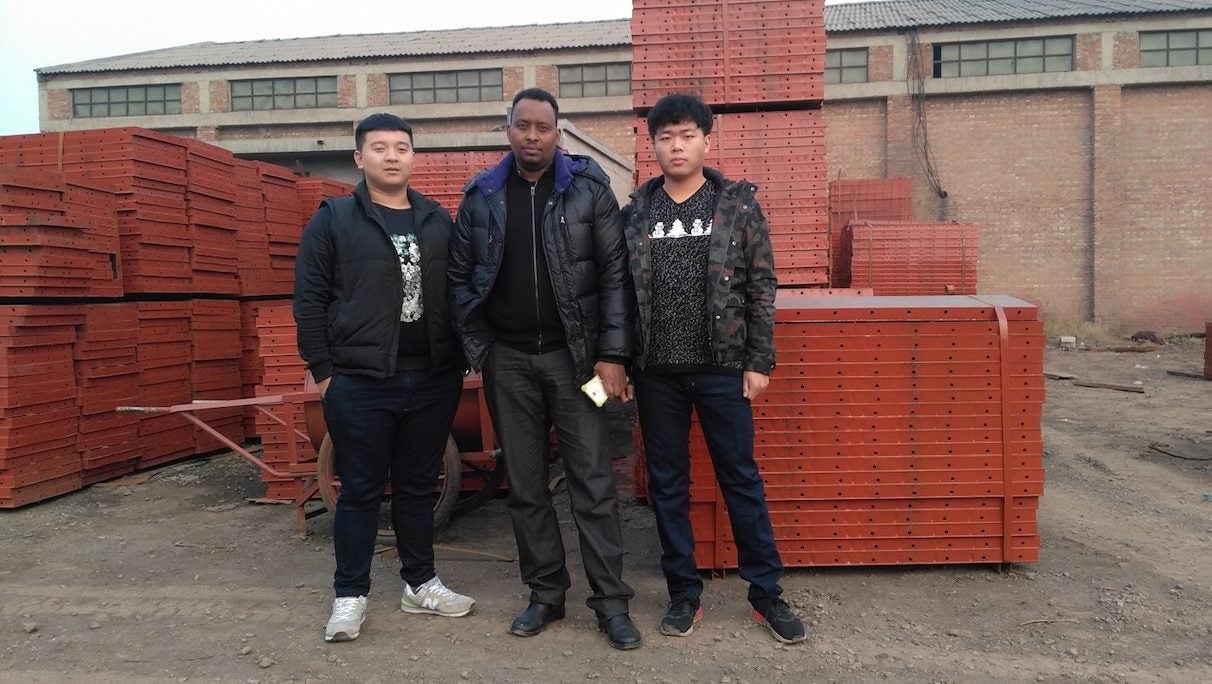
As a broker, Haji’s job is to check and monitor the progress of his clients’ orders, an excuse for monitoring and studying every part of the production process. “I take video in the factories of every item. I study how it started, how it finished, how it’s produced,” he says.
His advantage, he says, is that he knows exactly what people want to buy as well as how to make those items. For the last few years, he’s been importing light machinery from China for cutting building materials, garment stitching, or screen printing.
“I show them there is another way to do business. They can take this machine, they can do the processing and finishing in Africa,” he says. “The money has to stay in Africa. It’s a lot of money we can make by creating here.”